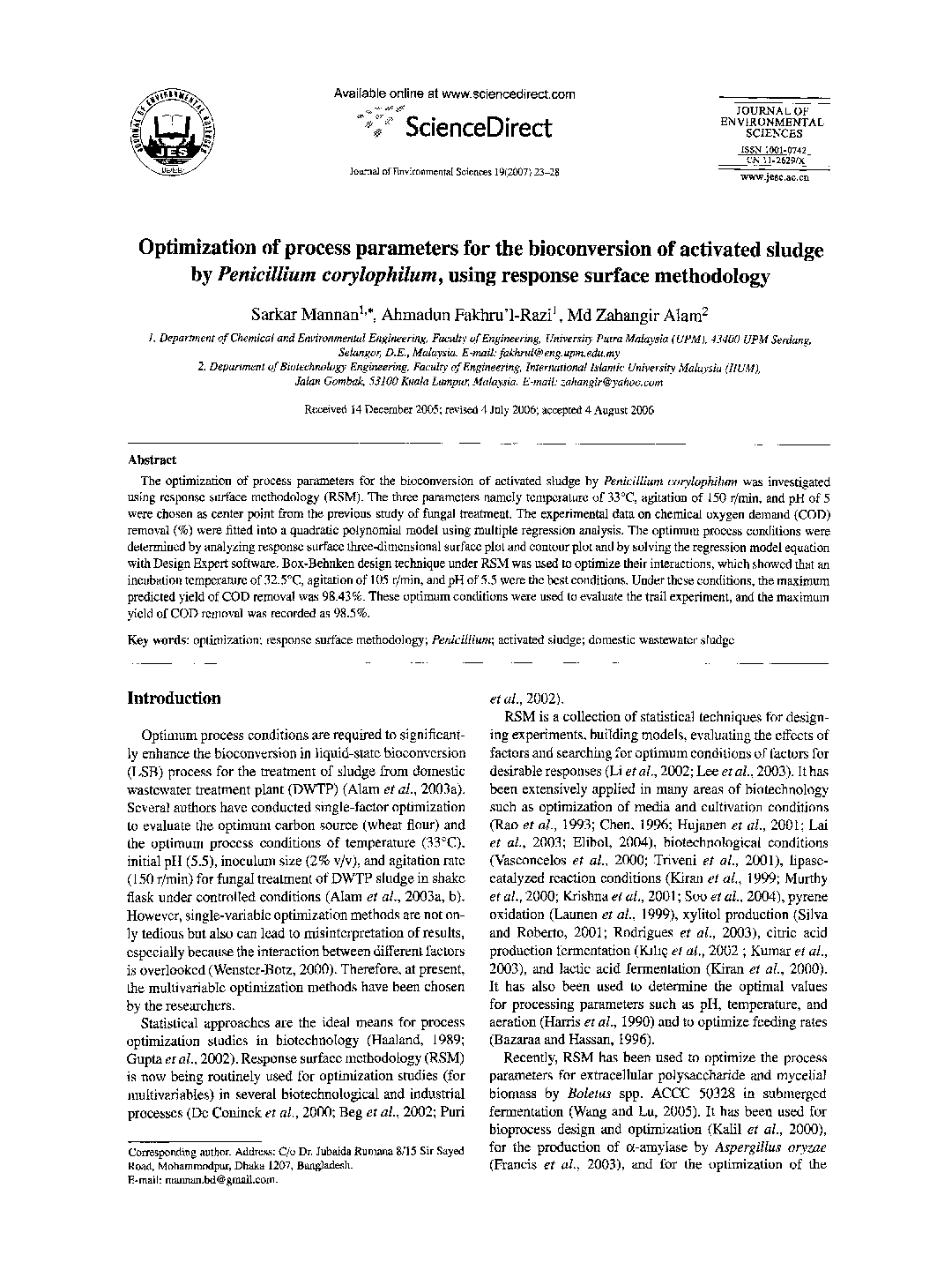| Article ID | Journal | Published Year | Pages | File Type |
|---|---|---|---|---|
| 4456809 | Journal of Environmental Sciences | 2007 | 6 Pages |
The optimization of process parameters for the bioconversion of activated sludge by Penicillium corylophilum was investigated using response surface methodology (RSM). The three parameters namely temperature of 33°C, agitation of 150 r/min, and pH of 5 were chosen as center point from the previous study of fungal treatment. The experimental data on chemical oxygen demand (COD) removal (%) were fitted into a quadratic polynomial model using multiple regression analysis. The optimum process conditions were determined by analyzing response surface three-dimensional surface plot and contour plot and by solving the regression model equation with Design Expert software. Box-Behnken design technique under RSM was used to optimize their interactions, which showed that an incubation temperature of 32.5°C, agitation of 105 r/min, and pH of 5.5 were the best conditions. Under these conditions, the maximum predicted yield of COD removal was 98.43%. These optimum conditions were used to evaluate the trail experiment, and the maximum yield of COD removal was recorded as 98.5%.
